Ragdoll cats are a large, medium-haired breed and tend to produce more poop than other breeds. However, if you provide your Ragdoll with the correct diet, plenty of exercise, and opportunities for mental stimulation, then their bowel movements don’t have to be an issue.
The size of a Ragdoll’s poo depends upon its diet – wet food typically results in smaller stools than dry kibble. It is also important to remember that all cats will go through phases when they poop or pee more frequently or less frequently; this is normal behavior, so there’s no need to worry unless the changes continue over long periods.
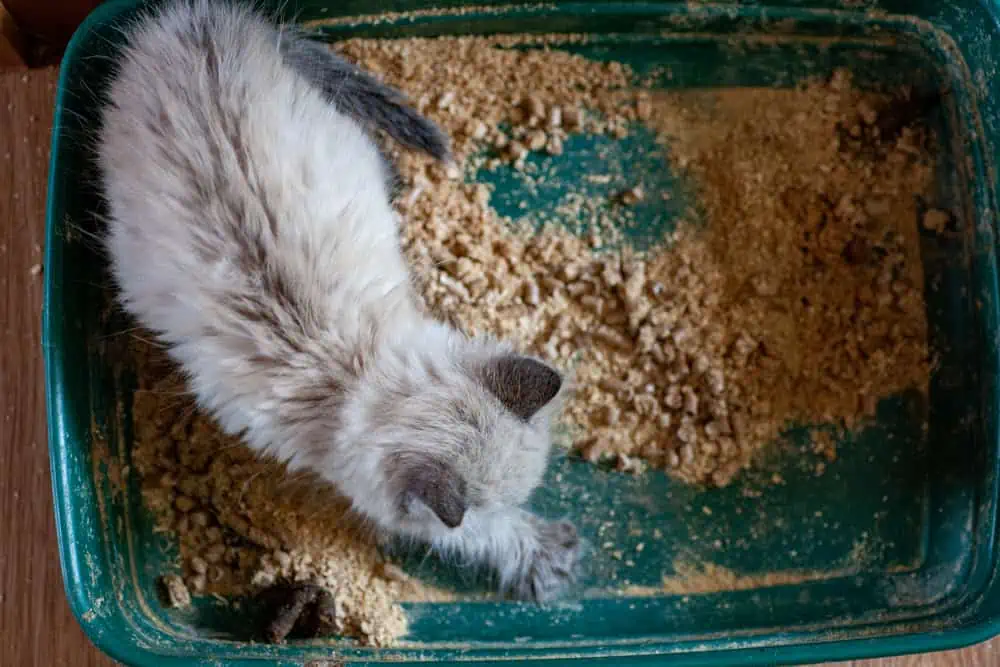
Generally speaking, the average adult cat should produce three small stools each day. If your Ragdoll is pooping extra-large amounts (or very little at all), it could indicate dietary problems or some illness, so you may want to consult with a vet if this occurs.
Table of Contents
Are Ragdoll cats prone to constipation?
Ragdoll cats are famous for their affectionate personality, intelligence, and stunning blue eyes. They’re also popular due to their low-maintenance grooming needs and adaptability to indoor living. However, as with any other cat breed, specific health issues may be more common in Ragdolls than others.
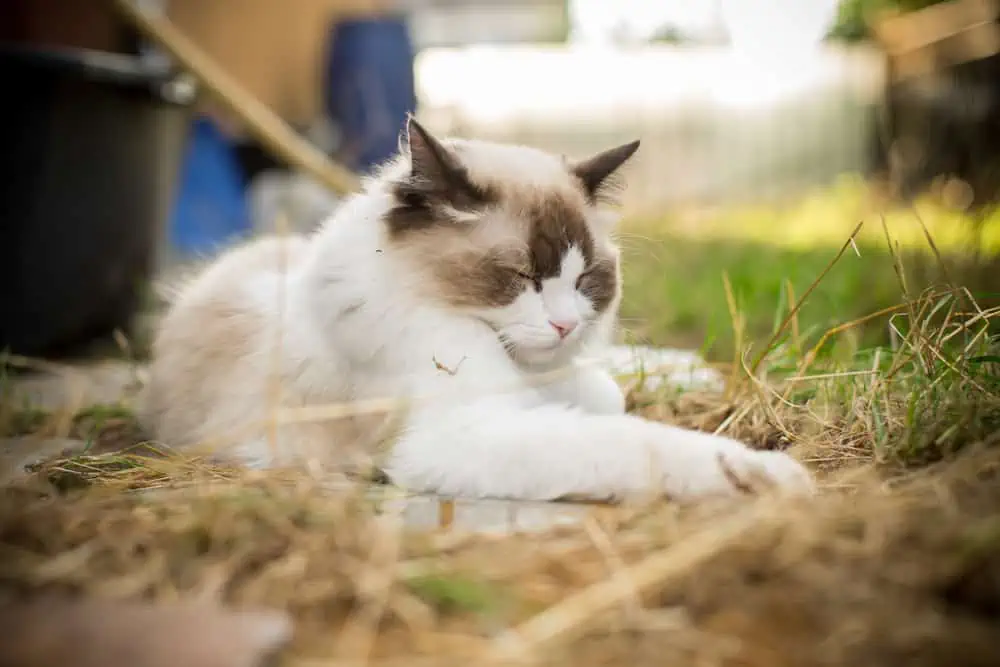
Constipation is among the most prevalent health issues. A brief episode of constipation every now and then is probably typical for the average cat.
If your Ragdoll shows signs of constipation or any other type of gastrointestinal discomfort, you must take him to the vet for a thorough examination. While constipation is not particularly common in Ragdolls, it can still occur and should be treated quickly if it does.
To help prevent or reduce constipation in your Ragdoll cat, make sure he has plenty of fresh water available at all times and access to a high-fiber diet and regular exercise. If you suspect your cat is having trouble with digestion, adding a probiotic supplement to its food or water bowl may also be beneficial.
Finally, keep an eye on their litter box habits, as any changes could signify constipation or another gastrointestinal issue.
Following these steps can help keep your Ragdoll cat healthy and constipation-free. If you have any questions or concerns about your cat’s health, don’t hesitate to call your vet for advice.
How long can a cat go without pooping?
Cats are naturally neat animals and are very particular about their bathrooms habits. As such, cats usually defecate once a day, although some cats may go for two days without producing a bowel movement.
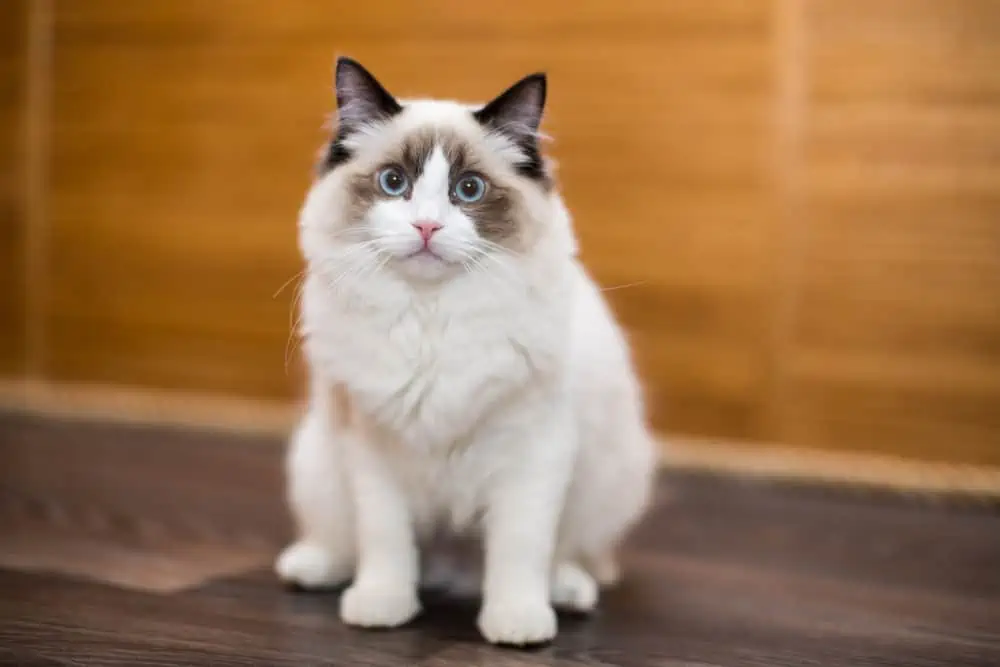
However, it is not advised to let your cat go any longer without pooping, as this could lead to several health problems. If you notice your cat hasn’t pooped in a few days, it’s best to take them to the vet for a check-up.
Prevention is always crucial, and ensuring your cat eats a balanced diet will help keep them healthy and regular.
How do you know when your cat wants to poop?
Cats are complex creatures and can be challenging to read when it comes to knowing when to go to the bathroom. Fortunately, a few key signs can signal you when your cat is ready for a poop break.
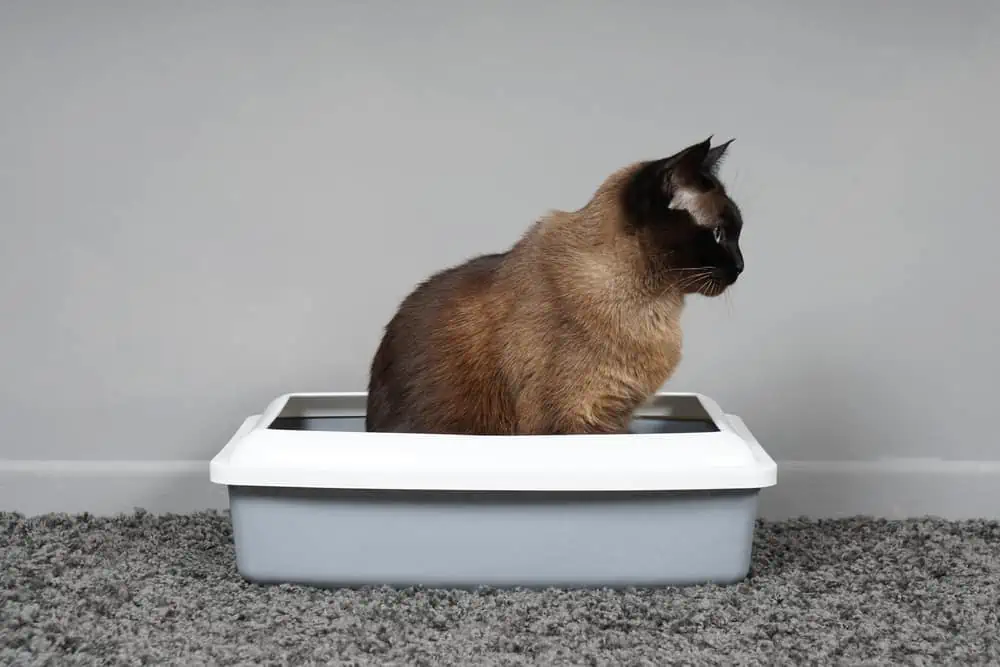
The most common sign is a certain kind of meowing. If your cat has been meowing more than usual and has a particular whine or yowl that’s different from its usual meows, they’re likely trying to tell you something.
Cats also tend to take an extra interest in the litter box when they want to go. They might sniff around the chest or seem more intent on getting inside than usual.
Finally, cats often display physical signs when they need to go. Your cat may paw at the ground or circle around, looking for the perfect spot. They might also act restless and twitchy, pacing back and forth, searching for an area to do their business.
Do Ragdolls have sensitive stomachs?
Ragdoll cats are known for their gentle and loving personalities, but do they have sensitive stomachs? Before answering this question, it is essential to understand the anatomy of a Ragdoll cat and how diet can affect digestion.
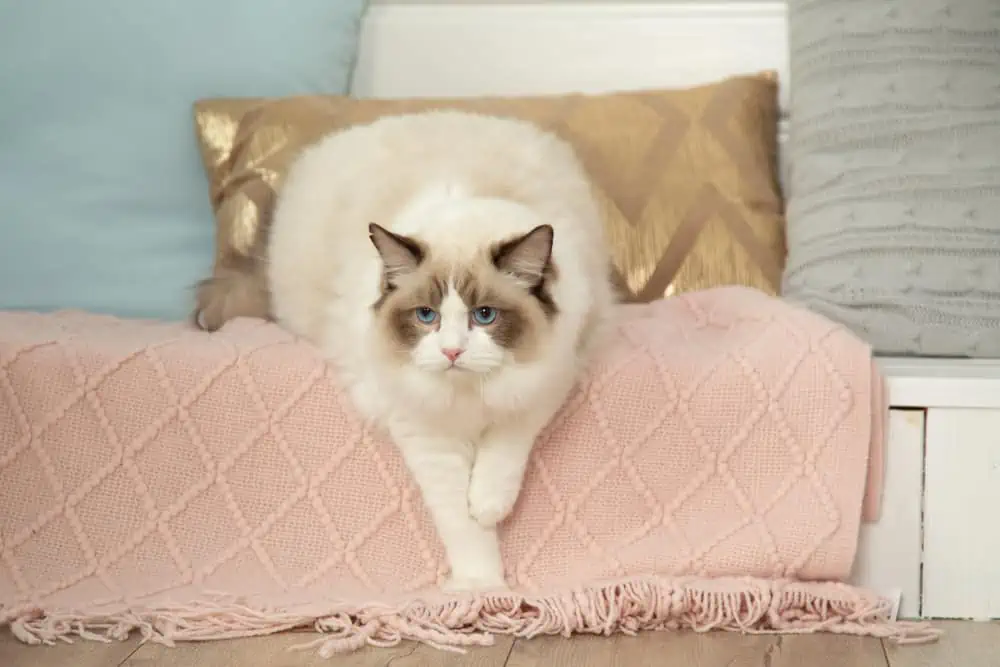
Ragdolls have short digestive tracts compared to other breeds of cats due to their large body size. As a result, they may have a more challenging time digesting certain types of food than other cats. A diet high in fat or protein can cause digestive upsets in Ragdolls because their intestines aren’t equipped to process the high levels of these nutrients.
Certain foods like dairy products and grains should also be avoided as they can cause indigestion in Ragdolls. It is essential to provide them with a nutritious, balanced diet formulated specifically for their breed.
In addition to avoiding certain foods, keeping your Ragdoll’s stress levels low is essential. Stress can reduce the cat’s ability to digest food properly and can lead to digestive issues. Make sure to provide your Ragdoll with a comfortable and calm environment.
Overall, Ragdolls can be prone to sensitive stomachs due to their short digestive tract and need for a special diet. You must monitor their dietary intake and ensure they eat suitable food for their breed. Also, try to reduce any stress your Ragdoll may feel to keep their digestive system functioning correctly.

